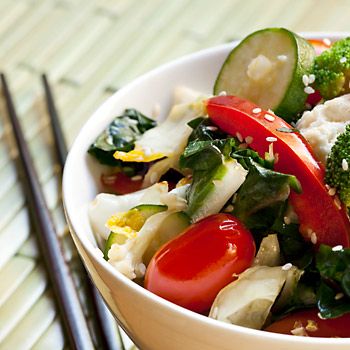Ethnic cuisine is a rich and diverse tapestry of flavors, aromas, and textures that have been passed down through generations. These unique culinary traditions offer a plethora of options for individuals seeking diverse nutritional choices. In this article, we will explore the fusion of ethnic cuisine and healthy eating, highlighting the nutritional benefits and importance of exploring these incredible culinary journeys.
Understanding Cultural Diversity in Cuisine
One of the most beautiful aspects of exploring ethnic cuisine is the ability to immerse oneself in different cultures and traditions. Each region across the globe boasts a distinct food culture influenced by local ingredients, climate, history, and traditions. From Indian curries to Mexican tacos, or Japanese sushi to Italian pasta, every cuisine tells a story and offers a unique set of flavors.
The Nutritional Advantages of Ethnic Cuisine
Contrary to popular belief, ethnic cuisine can be highly nutritious. Traditional recipes are often centered around fresh, whole ingredients such as vegetables, fruit, grains, legumes, and lean proteins. These ingredients provide essential vitamins, minerals, antioxidants, and fiber, all crucial for maintaining good health.
For example, Mediterranean cuisine, renowned for its health benefits, focuses on ingredients like olive oil, fish, whole grains, and fresh produce. This eating pattern has been associated with a reduced risk of heart disease and increased longevity.
Similarly, Asian cuisine, such as Japanese or Thai, often incorporates plenty of vegetables, seaweed, tofu, and fish, which are all excellent sources of nutrients. These traditional Asian diets are typically low in saturated fats and high in omega-3 fatty acids, known for their positive impact on cardiovascular health.
Fusion Cuisine and Adaptations
In recent years, fusion cuisine has gained popularity, blending traditional ethnic dishes with modern culinary techniques and flavors. This fusion provides a unique opportunity to infuse diverse nutritional options into our diets.
For example, a Japanese-inspired salad with fresh greens, quinoa, and grilled chicken can offer a delightful balance of flavors while providing a blend of essential nutrients. Alternatively, a Mexican-inspired stir fry with colorful vegetables, lean beef, and a sprinkle of spices can provide a vibrant and nutritious meal.
Exploring Ethnic Ingredients
Another exciting aspect of ethnic cuisine is discovering new ingredients that are not typically found in traditional Western diets. These exotic ingredients often bring forth a range of nutritional benefits.
For instance, spices like turmeric, widely used in Indian cuisine, contain curcumin, a powerful anti-inflammatory compound. Incorporating such spices into our meals not only adds a burst of flavor but also provides potential health benefits.
Additionally, exploring lesser-known fruits, vegetables, and grains, such as dragon fruit, jicama, or quinoa, can introduce us to new sources of vitamins, minerals, and dietary fiber. These diverse ingredients give us an opportunity to experiment with new recipes and expand our culinary horizons.
Conclusion
Ethnic cuisine offers a vast array of options for those looking to integrate nutritional variety into their diets. From the health-promoting Mediterranean diet to the nutrient-rich Asian cuisines, ethnic food provides a rich tapestry of flavors and nutritional benefits. Embracing ethnic cuisine allows us to appreciate global culinary traditions while nourishing our bodies with a wide range of essential nutrients. So, let us journey through the diverse world of ethnic cuisine and savor the nutritional options it has to offer.


